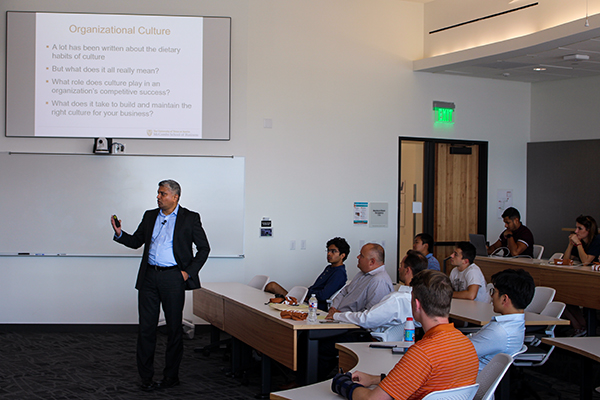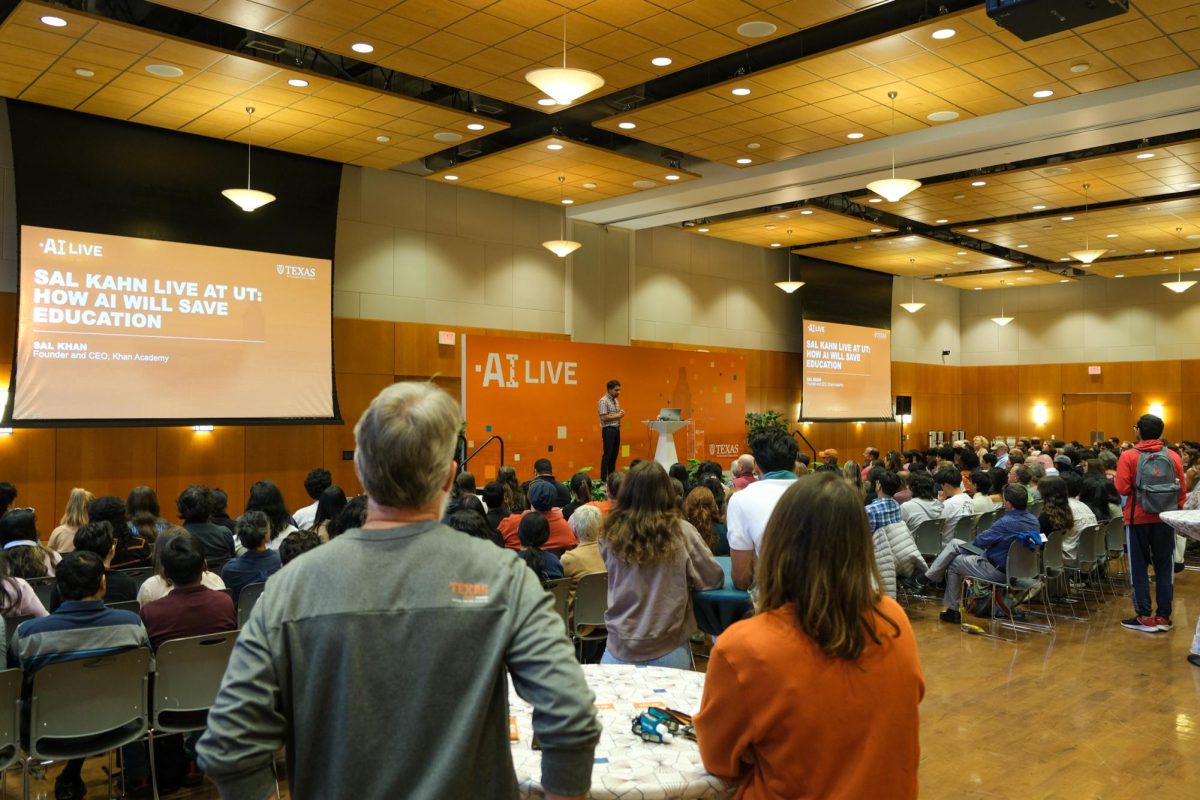Attendees of a business culture summit began their workshop Thursday by designing a cult.
Around 30 students and community members attended the workshop hosted by the Herb Kelleher Center for Entrepreneurship in Rowling Hall. Luis Martins, director of the center, gave a speech and directed the activities during the summit, which used aspects of cults to break down how a company can create a productive workplace culture.
During one of the activities, Martins said participants should focus on developing a mission, deciding mandatory behaviors and determining the type of people to recruit for the cult. After hearing from the participants about their cults, Martins said these ideas are similar to those used in a business.
“If you are in the business of running a cult (and) if you can get people to behave a certain way, then that behavior will produce the outcome that you want,” Martins said.
Martins said businesses should hire people who exemplify the behaviors important to the business, using companies such as Home Depot, Zappos and Four Seasons as examples.
“You’ll see a Four Seasons employee will always have a sort of personal touch,” Martins said. ”If you ask them downstairs in the lobby, ‘How do I find such and such room?’ they’re more likely to go walk you toward it than point you toward it because that’s what’s driven into their mind.”
Martins said these behaviors promote a “productive” business culture and that the audience can redirect and assess a culture that is already in place.
Computer science sophomore Shalin Gadhavi said he attended the event to gain information that would be helpful in building culture for his own startup.
“I’m planning to implement some of this in my company and try to get everybody more interested,” Gadhavi said. “I want them to stick with the company when they graduate, if it launches.”
Martins sat down with Elizabeth Bryant, the vice president of Southwest Airlines University, for a Q&A session following the workshop. They said culture plays a strategic role in business.
“People tend to leave leaders,” Bryant said. “They don’t leave companies.”
Bryant said businesses are only as strong as the culture they create.
“You may have a financial strategy (and) you may have a business strategy, but if you don’t have the right people to execute on that strategy, it’s not going to work,” Bryant said.


















